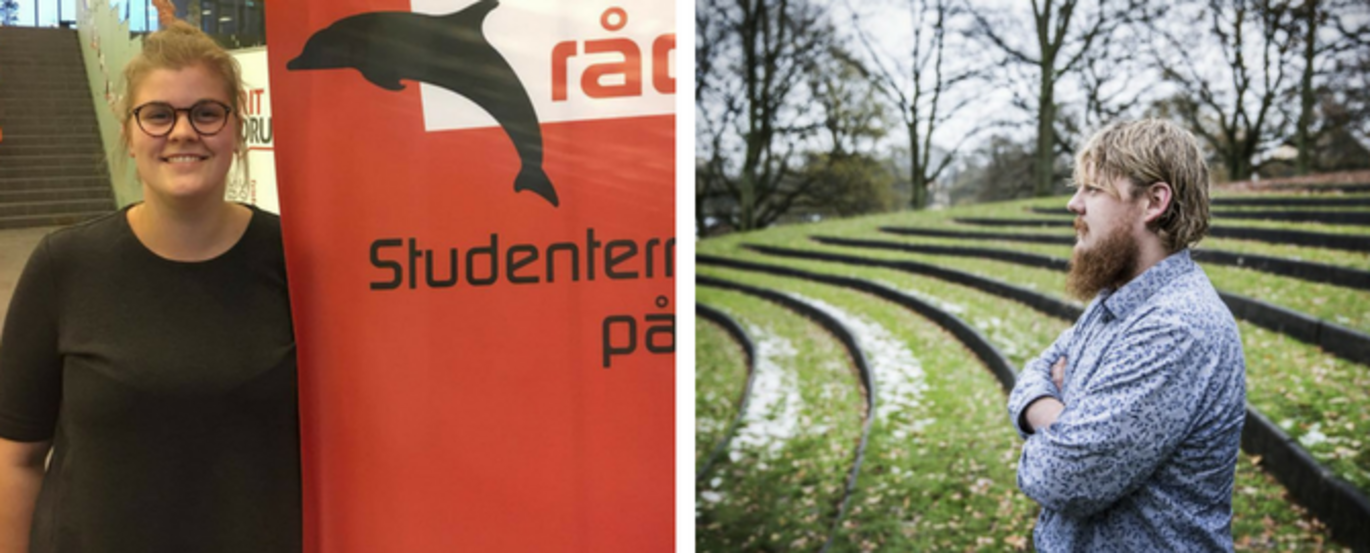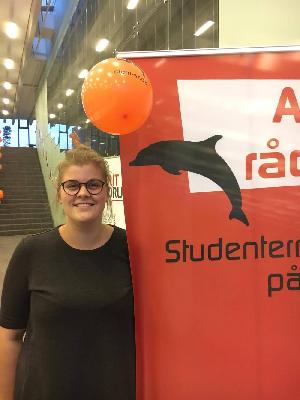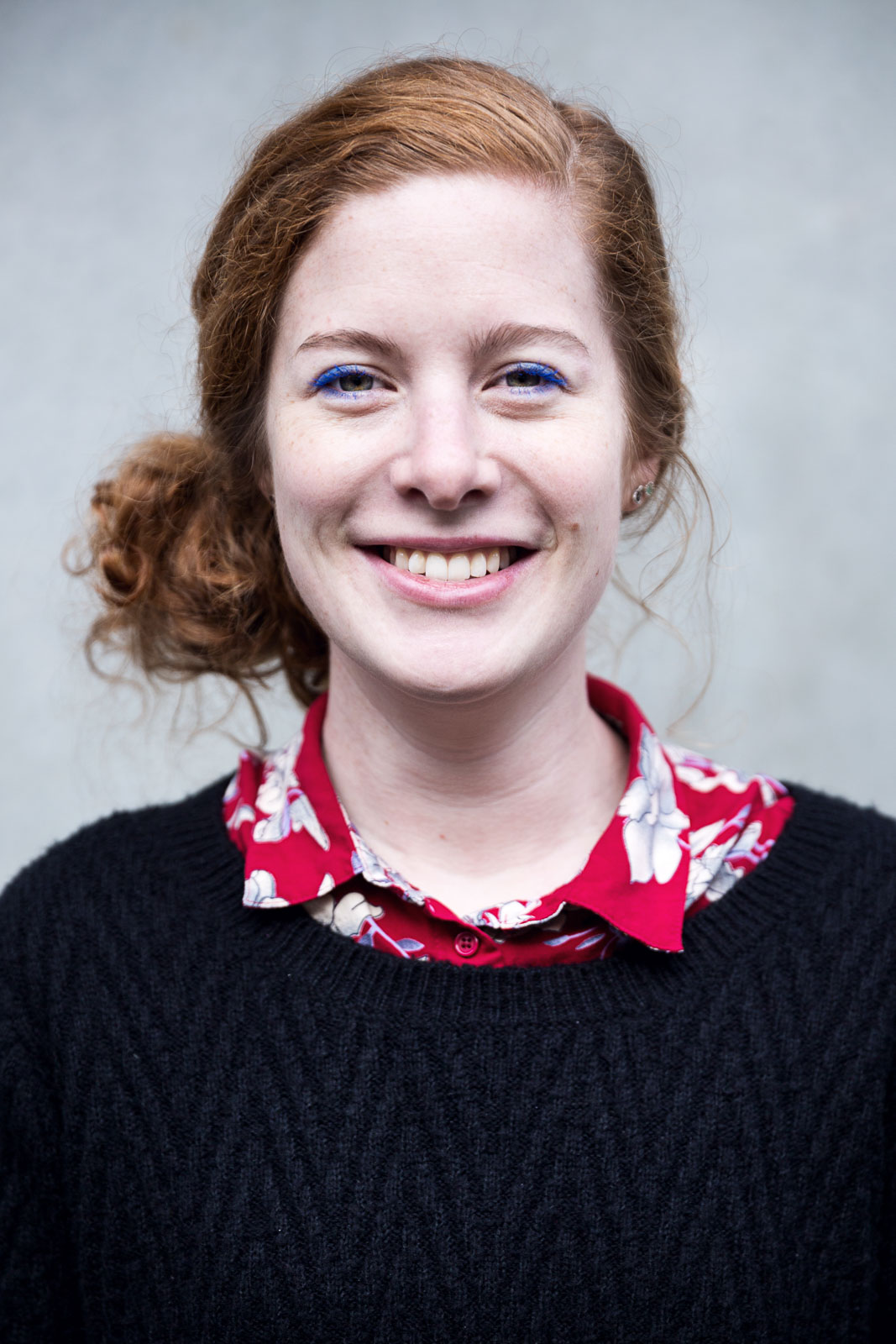Election drama at AU
The result is normally more or less given beforehand when it comes to electing student representatives to AU's board: The two seats on the board go to the Student Council's lead candidates. But this year saw the Arts Council get so many votes that Line Dam, who topped the list, was elected to one of the seats on the board. This has led to all of the candidates on the Arts Council list withdrawing, thereby ensuring that both mandates will go to the Student Council's two lead candidates anyway. Which shows a lack of respect for the votes of the students and for democracy at AU, according to critics from Frit Forum (Free Forum) and KS (Conservative Students).




That one of the two seats for students on the board of directors went to Sune Koch Rønnow – one of the two lead candidates from the Student Council – did not come as a surprise when the election results were announced by the chairman of AU's Election Committee, Professor Jørgen Albæk Jensen. More surprising, however, was the Student Council's second lead candidate Lieve Vermeulen failing to land the second mandate. Because that is how things usually turn out when the students elect their representatives to the AU board. But this year the Arts Council list attracted so many votes that the second mandate went to the top candidate on their list, Line Dam.
The result came as a surprise for the Student Council, who announced yesterday afternoon that the Arts Council list would be withdrawing completely, thereby handing the seat to the Student Council's second lead candidate, Lieve Vermeulen.
Arts Council: Not our intention to split the list
Daniel Anthony Slater, who is chairman of the Arts Council and a candidate on the Arts Council list, confirms that all candidates on the list will withdraw their candidacy on Tuesday.
"We’ve said throughout that our combined votes go to the Student Council's lead candidates. It has never been our intention to split the list. The idea was that we should be alternates, and we have campaigned on their behalf and not our own," he explains.
He does not think there is anything controversial in the Arts Council list withdrawing and thereby affecting the final result of the election.
"We’ve always said that a vote for us is a vote for the Student Council's lead candidates, because we’re in the same electoral pact."
But that is not the way your electoral pact functions technically, as a vote for you is de facto a vote for your list or for your candidates. If you receive the most votes, then you also receive the mandate.
"We hadn't foreseen that this is what would happen. Also, our communication has perhaps been a little erroneous. We are now upholding what we said during the election campaign by withdrawing the list so that the votes instead go to the electoral pact and the Student Council’s lead candidates."
Why don't you just respect the election result as it is?
"Because we have said to our voters that if they vote for us, they vote for the Student Council's lead candidates. It was never our intention to end up on the board. Therefore, I don’t see withdrawing our list as breaking our promise to our voters. I don’t think there is anything particularly problematic about it. But clearly, we will do things differently next year."
Why not just stand with one ranked list which has the two lead candidates instead of a big electoral pact with a lot of supporting lists at the faculties?
"We want to show how broad the support for the lead candidates is from the degree programme councils locally. You do that by voting for the degree programme councils, who then support the Student Council's lead candidates."
But when you stand for election with you own list, then there is a chance that you will also be elected, as happened this year. So then you choose to change the results by withdrawing the list so that the mandate goes to those who you in the Arts Council think are the right ones to have them, rather than respecting the wishes of the voters. What do you think about this?
"The voters have voted for this electoral pact. The aim of the pact is to get the Student Council's lead candidates onto the board. The fact that we received so many votes and had to withdraw the list to be able to give the mandate to the lead candidate is not something that I see as being problematic."
KS (Conservative Students, ed.): The candidates are voting cattle
That is a view that the chair of KS – the conservative student association – and their lead candidate for the University Board, Henrik Dahlin, does not agree with. He believes that the decision by the Arts Council to withdraw and instead give the seat on the board to one of the Student Council's lead candidates, Lieve Vermeulen, is a problem for the transparency of the electoral system.
"This just underlines the special nature of democracy at AU. The Student Council puts forward a lot of candidates who don’t want to get elected, but who act as voting cattle for the lead candidates," says Henrik Dahlin.
According to him, the Student Council gets its votes by encouraging the students to vote for their friends from degree programme councils, who they know and trust. The votes are then channelled to the Student Council's lead candidates. Dahlin does not accept the Student Council's argument that all students necessarily know that is what actually happens.
"Really, there should only be three lists for the elections to the board, which aren’t part of an electoral pact: KS, Frit Forum and the Student Council."
Frit Forum: An admission of the failure of democracy at AU
Neither does Frit Forum understand the decision by the Arts Council to withdraw its list.
"what this actually does show how nonserious the Student Council’s approach to the university election is. It’s deeply criticisable that the Arts Council relinquishes the seat which the students had given them. It eliminates the value of the student votes and is an admission of the failure of democracy at AU," says Stine Linea Pedersen, who is chair of Frit Forum in Aarhus.
Frit Forum criticises the Student Council for encouraging the students to vote for local candidates, who, when it comes down to it, are not ready to assume the responsibility of being elected:
"Fundamentally, I don’t think you should have candidates standing for election who aren’t ready to take up the post. For all candidates, it’s a vote of confidence from the students if they’re elected. If you’re not responsible enough to accept that trust, you shouldn’t stand for election," says Pedersen, who believes that everyone has a duty to listen to the students who voted and to respect the election results.
Frit Forum concerned about voter turnout
She is concerned that the Student Council's manoeuver can have negative consequences for the students' interest in university elections in the future.
"I’m concerned that it can leave the students with a feeling that their vote was wasted if the candidate or the list they voted for isn’t ready for the task anyway. The Student Council says they want to promote democracy, but I fear that fewer students will find the election interesting because the whole thing is agreed in advance anyway," explains Pedersen.
The Student Council: We’ve handled things clumsily
The criticism does not affect the chair of the Student Council, Mads Hareskov Jørgensen.
"The Student Council has entered into this electoral pact to show our local support. The lead candidates are tied to the local degree programme councils, and we’ve been very upfront about how this works. If the Arts Council list hadn’t withdrawn, that would be more of a case of cheating the voters, because we had said that a vote for the Arts Council list is a vote for the Student Council's lead candidates."
Neither is he worried that the withdrawal of the Arts Council will affect the students' desire to get involved in future elections.
"I don't think it will lead to more or less students voting. In the Student Council we have decided who our candidates are."
But the election result could indicate that the students want something else?
"I don't agree with that. It’s difficult to know without having spoken to all of those who voted."
You could also take the consequences and accept that you have not been good enough to control the technical aspects of the election and just accept the result and learn from it ready for the next election.
"Well yes, it's true that we have not managed the technical aspects of the election well enough and that we’ve handled things clumsily. But I still think that we would be going behind the backs of the many students who have voted, as what we’ve said throughout is that the Arts Council mandate will go to our lead candidates. Also, technically there is nothing to stop a list from withdrawing."
Mads Hareskov Jørgensen acknowledges that the Student Council stands for election with multiple lists in order to get as many votes as possible. He points out that Frit Forum has also used the same tactic in previous elections.
"Because we stand in the way we do, we’ve always been aware that this outcome could be a possibility, but when we do as we do, it’s with the clear objective of showing that the Student Council's mandate is broad and academically well-founded. We are defined by our local lists, and our position is formed by them."
Translated by Peter Lambourne.

